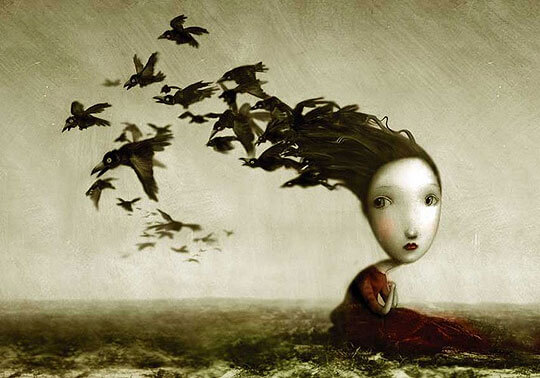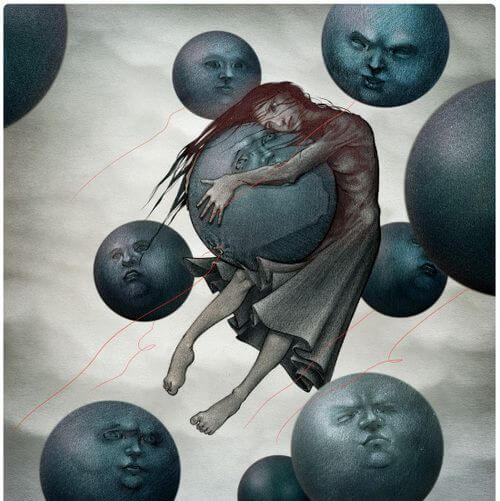Why the Flames of Revenge Must Be Extinguished


Written and verified by the psychologist Sergio De Dios González
Gandhi said that “an eye for an eye will leave the whole world blind”. However, his warning about revenge is simple to understand but difficult to apply.
You often feel the desire to take revenge when someone’s hurt you deeply. Indeed, when someone you love and appreciate hurts you, it leaves an emotional scar, one that burns with intense heat. In fact, you want to relieve the pain by causing another wound, deep in the heart of your aggressor.
When you’re faced with a deep emotional wound, you can feel the need to cause the one who hurt you similar or greater damage than you suffered in the first place.
The origin of the expression: “An eye for an eye and a tooth for a tooth”
The origin of this expression isn’t entirely clear. As a matter of fact, it’s found with a different structure but the same meaning in both the Bible and the Code of Hammurabi. In both texts, the meaning given to the phrase is the same that transcends to this day. In other words, punishment, and retaliation in kind.
The phrase is also known as Talion Law. It means ‘the identical’ or ‘the similar’. It also refers to the need for punishment and retaliation in kind in order for justice to be done.
However, does paying back in the same currency really guarantee justice? Or are we simply feeding it into a tireless spiral of revenge?
Immediate satisfaction, permanent consequences
Revenge is a failed attempt to balance the scales. That’s because, no matter how many adjustments are made, they’ll always remain unbalanced. Indeed, as the injured person you’ll always feel inferior to the person who caused you harm. Therefore, you try and hurt them in order to regain your initial position of balance. Or, you may want to achieve superiority.
The first emotion that usually appears when you take revenge is satisfaction. Furthermore, you feel that everything has regained its balance. However, this feeling quickly fades to give way to feelings of guilt and remorse. It can also lead to feelings of emptiness, rather like when you come to the end of a big project. Even more so if you’ve dedicated a lot of time and resources to planning and executing your revenge.

On the other hand, if you don’t feel any remorse after taking your revenge, the scales still don’t balance. In fact, the consequences of your revenge endure. Furthermore, you’ll feel its effects in the future, long after your desire to inflict harm has disappeared. As a matter of fact, you’ll actually feel sad for the damage you caused.
It’s impossible to predict the future and know who you’ll need by your side. Perhaps that person you want to hurt today will be important in your life tomorrow. Remember, feelings of revenge go away, but the hurt caused by this feeling can be deep or permanent.
Never again
When one person opens the first page of the book of revenge, the story continues, increasing in intensity until it reaches its climax. Like the story, the actions of both characters also increase in intensity.
Revenge resides in the Land of Never Again, where you stay young, and where there are no rules and no responsibilities.

When a problem arises between two or more people there are several alternatives: flee, attack, or solve it. In the case of revenge, the chosen alternative is to attack. If both people decide to use the same strategy, there’ll be an escalation of the conflict that’ll keep increasing until one of the parties decides that too much has already been lost in that fight.
The world lacks compassion and honor
In cultures of honor, where the important thing isn’t the damage caused but for honor to be restored, relationships are set on fire. However, fueling revenge with attacks will only fan the flames of hatred. In fact, putting out the fire is the only way to ensure that there’s something salvageable from the ashes.
There’s no justice in revenge and no reparation in attack.
Responding to pain with more pain won’t change the situation, nor will it make you feel better. Most of the time, being brave doesn’t mean responding in a stronger way than the other, but rather putting yourself in the place of the one who hurt you and deciding that you don’t want anyone else to relive that pain.
This text is provided for informational purposes only and does not replace consultation with a professional. If in doubt, consult your specialist.








